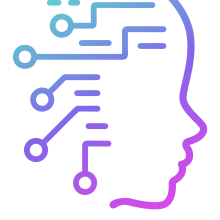PAIDEIA Report Highlights the Key Role of Artificial Intelligence in Education and the Need for Prepared Teachers

The Center for Educational Initiatives, as part of the international PAIDEIA consortium, presents the new report "Analysis of the State of Artificial Intelligence in Education in Europe." This report outlines how European Union countries are approaching the integration of AI in educational systems and what perspectives are emerging for developing digital skills among teachers and students. The study covers seven countries: Bulgaria, Belgium, Spain, Ireland, Italy, Malta, and Turkey, aiming to showcase best practices, challenges, and policy aspects of incorporating AI into curricula.
Key Highlights of the Report:
- Integration of AI in Curricula – Each country faces the challenge of embedding AI within the curriculum to ensure that students not only understand how these technologies work but also develop a critical approach to their usage. For instance, in Spain and Italy, new programs are being developed to provide practical and applicable AI knowledge for students at all levels.
- Professional Development for Teachers – The report emphasizes the need for teachers to be prepared for working with AI through systematic and specialized training. Training teachers, both current and those in training, is a top priority for all countries. Bulgaria, for example, offers digital skills enhancement programs to help teachers adapt to the rapidly changing technological environment.
- Ethical Standards and Transparency – The introduction of AI in education requires high standards of ethics and transparency. The report notes that it is important for developed algorithms and AI systems to be responsible and transparent to prevent bias and discrimination. Bulgaria and Belgium, in particular, emphasize the protection of privacy and the ethical use of AI.
- Support for Personalized Learning – Artificial intelligence offers opportunities for personalized learning and assessment, tailored to students' individual needs. This includes automated feedback systems and adaptive learning materials, which can significantly improve educational quality and student achievement.
Benefits for Stakeholders:
The report provides valuable insights for stakeholders such as Ministries of Education, universities, and educational institutions planning or already working on incorporating AI into the educational system. The document’s recommendations can support ministries in building national AI policies that include ethical use and safety standards. For universities and teacher training institutes, the report offers key guidance for updating curricula and preparing future teachers for the technology-integrated educational environment.
What’s Next?
The PAIDEIA project will continue raising awareness and competence in AI education through joint initiatives, training, and exchange programs. Future activities are planned to prepare the educational system for successful and ethical AI integration in teaching.
This report marks a step toward a new educational reality that meets the demands of the digital age and prepares young people for the challenges of the future.


